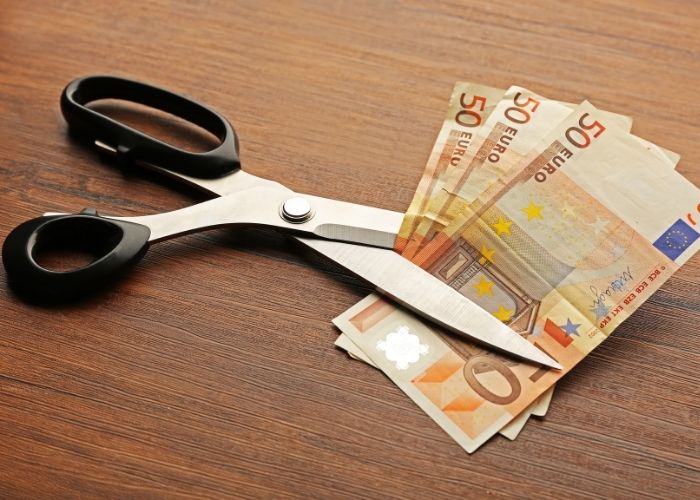MADRID – Unless something unexpected happens, Spanish wage earners are doomed to experience the biggest devaluation in the country’s recent history.
Spanish purchasing power is falling sharply with consumer prices around 10% higher than a year ago until at least June. At the same time, salaries are rising minimally. If the Spanish Bank forecasts correctly, wage earners will experience the largest decline in purchasing power in nearly 40 years.
Wage devaluation
This is against the background of the forecast that average inflation will be 7.6% by the end of 2022. And, furthermore, that salaries will rise less than 4%. At present, the average increase in wages is only 2.4%.
1984
To see a similar gap between salaries and prices in just one year, we have to go back to 1984. This was when the Consumer Price Index (CPI) rose to 11.3% while salaries were revalued by 7.8%. With a difference of 3.5 points as a result.
If the trend continues so far this year – with a March CPI of 9.8% and salary increases no more than 2.4% under collective agreements – the gap between salaries and prices will be much wider. It remains to be seen whether inflation will moderate from July and whether salaries will be better revalued as the year progresses.
Last year already a decline in purchasing power
The situation has slightly worsened because the Spaniards already lost purchasing power last year. The difference between price increases and wage increases was then 1.5 points. That was the biggest difference in this century. That difference applied to an average wage means a loss of €400 in purchasing power.
Poorest hit hardest
The significant share of energy prices in inflation, both in Spain and in Europe, and its growing impact on food prices mean that the lowest incomes, in particular, are the most affected by this crisis.
In March, the last month for which these figures are available, 63% of the price increases were caused by those for energy and food. Two cost items on which the lowest incomes spend relatively more of their money than the highest incomes.
The lowest wages increased the least
In the sectors with the lowest wages, such as the hospitality industry and the agricultural sector, wage increases are also below average. According to data on wage increases by the collective agreements published by the Ministry of Work, salaries in the hospitality industry rose by only 1%. Clearly far below the average of 2.4%.
In the case of wages in the agricultural sector, there was an average wage increase agreed with collective agreements of 1.6%. At the other end of the spectrum is the transport sector with an increase of 3.5%, the construction sector with 3.2%, and manufacturing with 3.1%.
Also read: Historic high inflation in Spain


